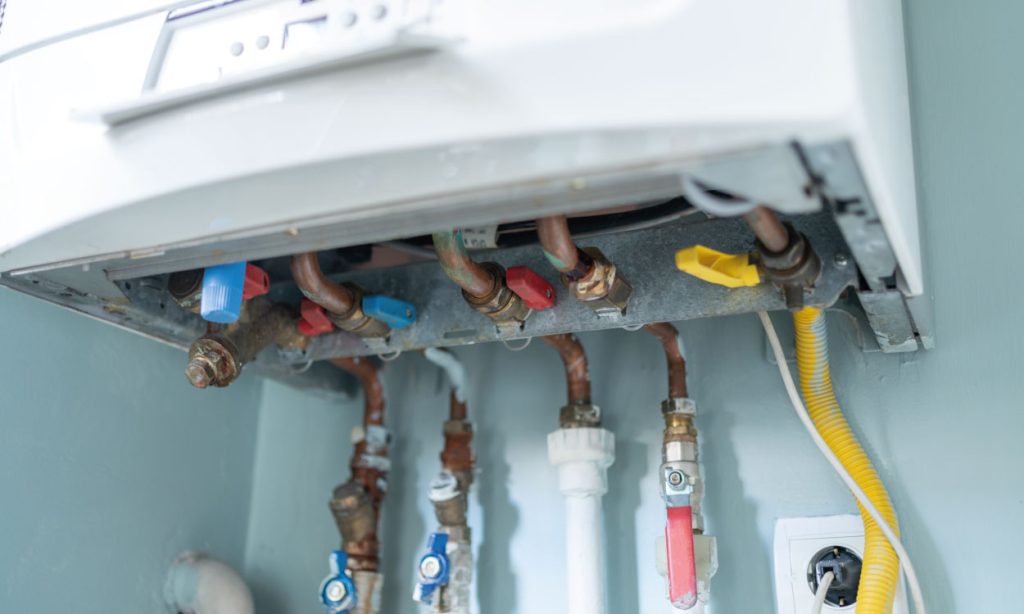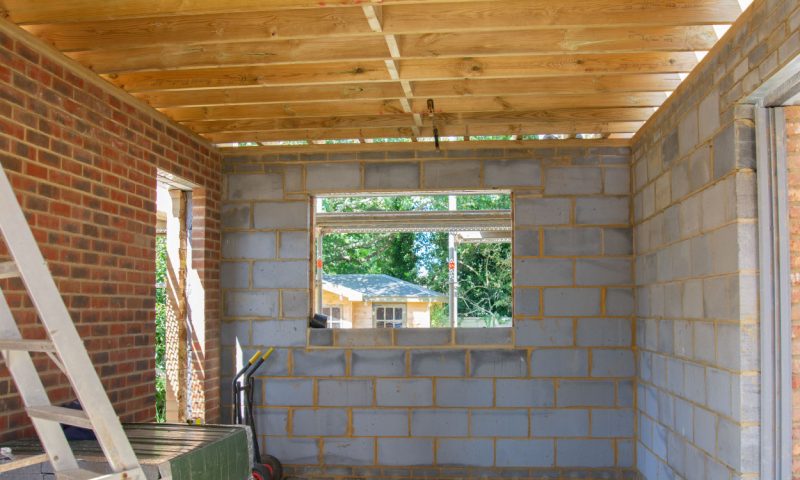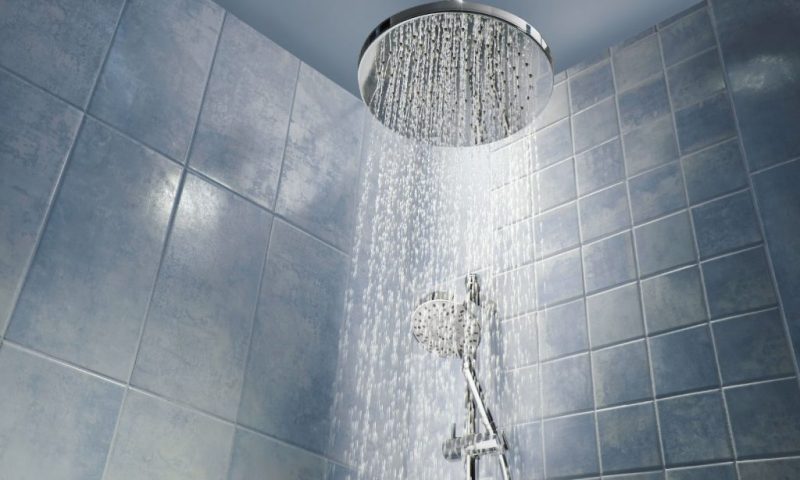Can You Have a Boiler in a Bedroom?

Yes, it is possible to have a boiler installed in a bedroom in the UK – but there are many important legal, practical and health and safety considerations you must be aware of.
While it is not the most common place to find a boiler, under certain conditions, it is completely safe and legal. However, strict guidelines must be followed to ensure it complies with building regulations and, more importantly, does not pose a risk to your health.
In this article, we’ll take a look at the legal and safety implications of installing a boiler in a bedroom, outlining the key factors you must bear in mind before making a decision.
Read on for more…

Can you have a boiler a bedroom?
As mentioned above, yes, it is possible to have a boiler installed in a bedroom. Whether or not you should will depend on legal and health and safety factors.
Let’s take a closer look at these considerations:
Is it legal?
In the UK, it is legal to have a gas boiler installed in a bedroom, but there are specific restrictions based on the size and type of boiler.
According to the Gas Safety Regulations 1998, a room used as a sleeping space cannot contain a gas boiler above 14 kilowatts, unless the boiler is room-sealed. This rule is in place to minimise the risk of carbon monoxide exposure, which can be fatal.
So, if you have a boiler that is under 14kw and is regularly serviced, it is possible to install it in a bedroom even if the room isn’t sealed. However, most modern boilers exceed 14kw, so they must be room-sealed if in a bedroom. It’s worth noting that these rules only apply to boilers installed after 1996, so in some older properties, boilers more powerful than 14kw may be found in unsealed bedrooms – but this does increase a safety risk.
Ultimately, it is legal, but it’s not as simple as just choosing a convenient wall. There are also regulations regarding ventilation and flue placement that need to be met.
Is it safe?
When installed correctly and in line with the regulations outlined above, a boiler can be installed safely in a bedroom. However, there is often an understandable concern regarding carbon monoxide.
Carbon monoxide is a colourless and odourless gas that has potentially deadly consequences if it is exposed to people. If a boiler is not properly ventilated, this gas can leak into a room. This is especially dangerous if the boiler is located in a bedroom where someone is sleeping and unable to detect the symptoms of carbon monoxide poisoning.
To mitigate the risk of carbon monoxide poisoning, a boiler should only be installed by a Gas Safe registered engineer and a carbon monoxide detector should be placed near the boiler.
What does a ‘sealed room’ mean?
A room-sealed boiler is a type of boiler where the combustion process is completely sealed off from the room it is installed in. These boilers take in air from outside and expel gases via a balanced flue system.
This reduces the risk of carbon monoxide leaking into the living space. This makes room-sealed boilers much safer than the older systems that typically used open-flues – especially if you’re planning on installing the boiler in a bedroom.
Room-sealed boilers are now industry-standard, and most modern combi boilers fall into this category. Plus, if the boiler is above 14kw it is a legal requirement for the room to be sealed.
Considerations for boilers in bedrooms
Before installing a boiler in a bedroom, there are several practical and regulatory considerations you should bear in mind:
Space
Boilers – especially more traditional models – take up a lot of space. If space is already at a premium in your bedroom, adding a boiler might make it feel more cramped. Even if you have lots of room, once you’ve added an extra pipework and room for ventilation, it can take up significant space.
Warmth
It’s normal for boilers to emit heat when they’re running. While this might be beneficial in the colder months, during the summer, it might make your bedroom unpleasantly hot. Proper insulation and ventilation can help manage the temperature, but some heat is always going to escape into the room.
Noise
While modern boilers are quieter than older models, they are not silent. So, if you’re a light sleeper, the hum of the boiler could be disruptive. Look for boilers with low dB ratings if you think this may be a problem for you, and consider having it boxed in (with ventilation) to reduce noise as much as possible.
Carbon monoxide
As discussed earlier, all gas appliances carry a small carbon monoxide risk. Installing a room-sealed boiler and fitting a carbon monoxide detector significantly reduces this risk, but annual services must be arranged to make sure the boiler remains safe at all times.
Regulations
Before you arrange the boiler installation, you must ensure all building and gas safety regulations are met. This includes only using a Gas Safe engineer and ensuring the room is sealed if the boiler exceeds 14kw.
Where should you have a boiler installed?
Bedrooms are one option, but there are many other places in your house where a boiler is more suitable:
- Kitchen: This is the most typical boiler location. Kitchens already contain ventilation and gas supply infrastructure, making installation straightforward.
- Bathroom: Permitted as long as the boiler is located far enough from water sources and the room is adequately ventilated.
- Utility room: If available, this is ideal – it keeps noise and heat out of living areas and offers easy access for servicing.
- Airing cupboard: Modern compact combi boilers are often fitted inside cupboards, especially in flats. Adequate ventilation will be required.
- Lofts and garages: Lofts and garages are becoming increasingly popular boiler location choices. They help free up living space, but require insulation to prevent them from freezing and becoming damaged in wintertime.
So, to conclude, yes, you can have a boiler installed in your bedroom, but you must make sure the conditions are right.
The post Can You Have a Boiler in a Bedroom? appeared first on UK Home Improvement.







